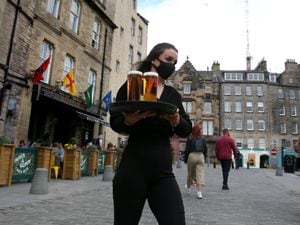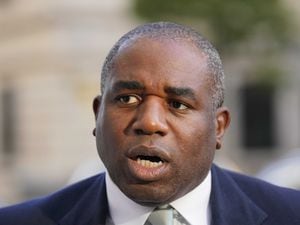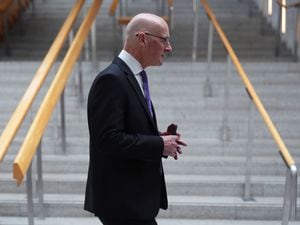Scotland has gone from ‘lockdown to slowdown’ warns small business chief
Andrew McRae of the Federation of Small Businesses said continued Covid restrictions would be the ‘final straw’ for some operators.

Many businesses will be frustrated that Scotland has “gone from lockdown to slowdown” with “patience and cash reserves in short supply”, a business organisation has said.
Changes announced by First Minister Nicola Sturgeon on Tuesday, in which she paused plans to ease Covid restrictions in much of the country, amount to “two steps forward but one step back”, said the Federation of Small Businesses (FSB).
Andrew McRae, FSB’s Scotland policy chairman, also warned many local operators could face “the final straw” while grappling with trading restrictions as the furlough scheme is gradually withdrawn from July.
On Tuesday, Ms Sturgeon said the country was still at a “delicate and fragile point” in the battle with Covid-19 as she announced 13 local authority areas, including Edinburgh, Dundee and Stirling, will remain in Level 2.
It had been hoped most of Scotland would be able to move to Level 1.
However, from Saturday, Glasgow, which has been under the strictest restrictions in all of Scotland, will see these relaxed somewhat, with the city moving to Level 2.
On that date, many island communities will move to Level 0 – the lowest level there is under the Scottish five-tier system – while 15 council areas will step down to Level 1.
Mr McRae said: “Glasgow and large swathes of Scotland will be pleased to hear that some restrictions are to be lifted.
“But firms and communities in the rest of the country will be frustrated that progress has stalled.
“We’ve gone from lockdown to slowdown, and patience and cash reserves are in short supply.
“From the start of July, the furlough scheme will begin to get wound down but it looks like businesses in Scotland will still face substantial trading restrictions.
“This could be the final straw for many local operators, and decision-makers in Edinburgh and London must avoid this crunch point.
“We need to get urgent financial help to firms who took on workers in anticipation of greater freedoms but now can’t furlough these employees.”
David Lonsdale, director of the Scottish Retail Consortium, said the changes could benefit coffee shops and fast service restaurants in areas dropping down a level, who can welcome more customers in store for longer.
He added: “That said, the patchwork quilt of differing rules and restrictions which apply in each of the 32 local authorities does add to operational complexity.”
He said the “thrust of the easing is undoubtedly encouraging” but many retailers rely on the “economic eco-system that office workers provide”.
Mr Lonsdale added: “Their long awaited return is vital to bringing back the shopper footfall and energy that is desperately needed, especially in our city centres.”
Marc Crothall, chief executive of the Scottish Tourism Alliance, said businesses in the areas dropping to Level 1 would benefit from a “huge boost”.
He said: “This will, however, be undoubtedly met with a degree of disappointment for those in the local authority areas which will not move to level 1 at the same time, as so many had hoped would be the case in order to be able to trade in a more sustainable way.
“I know that today’s news will be particularly welcomed by businesses within our island communities who will be able to operate in the most normal circumstances that they will have experienced since the outbreak of the pandemic.
“We very much hope that it will not be long before all tourism businesses the length and breadth of Scotland are able to operate similarly.”





